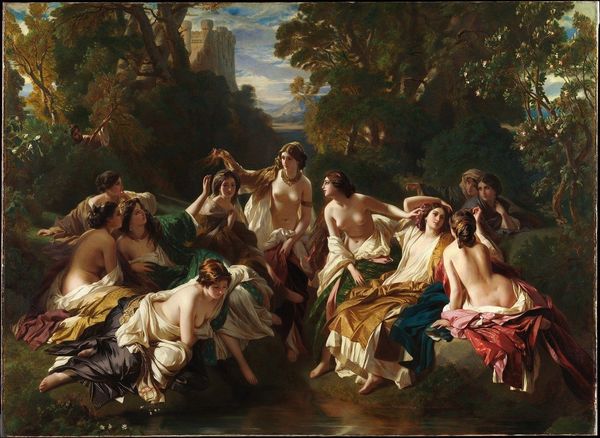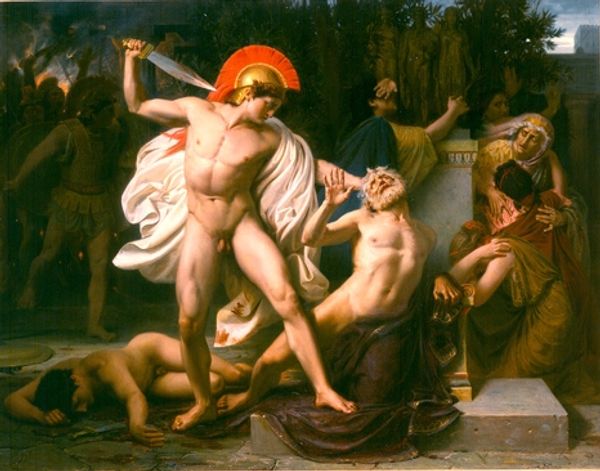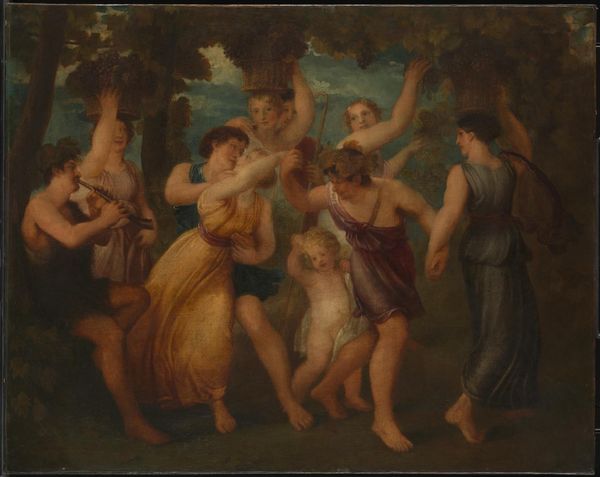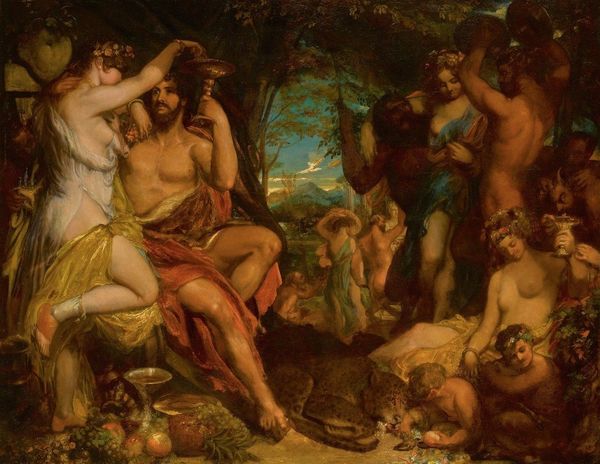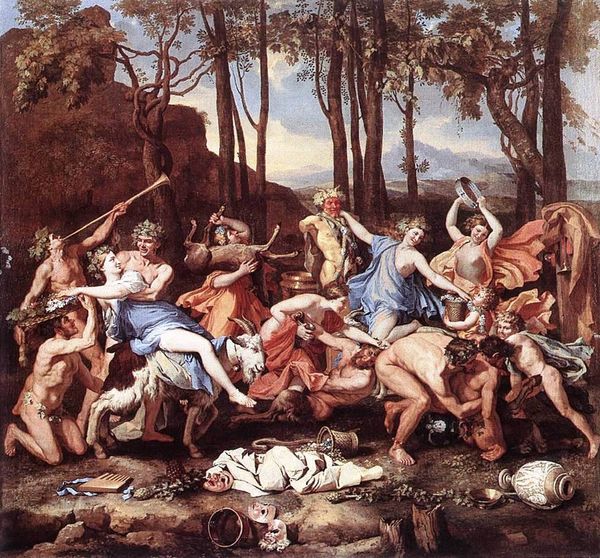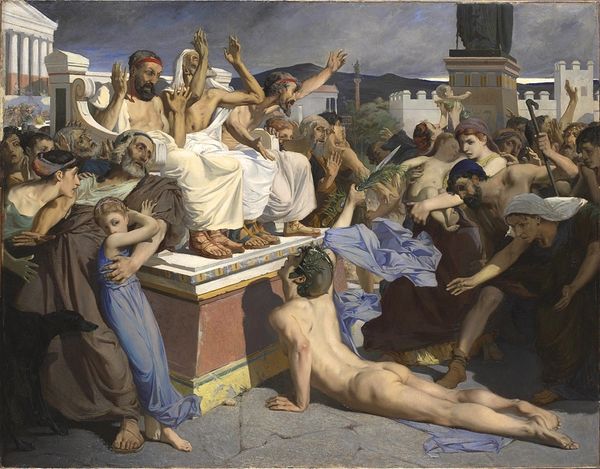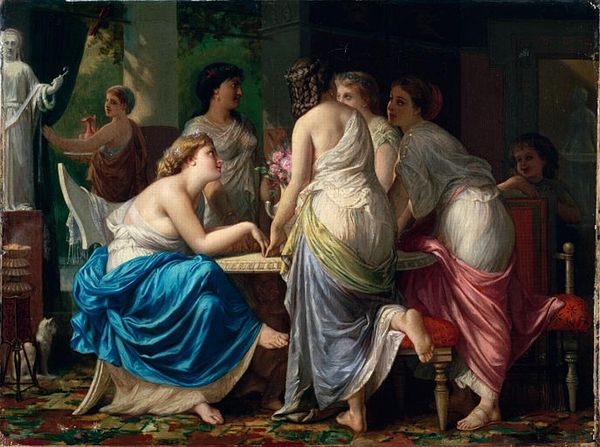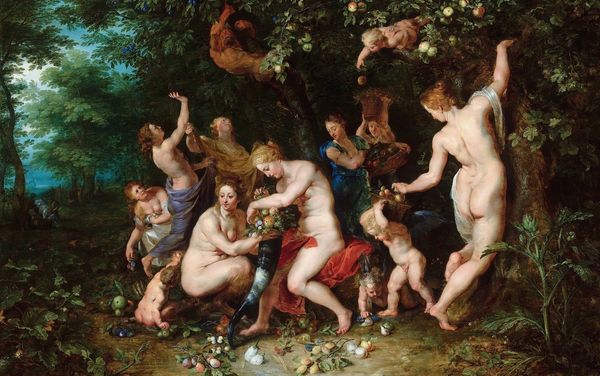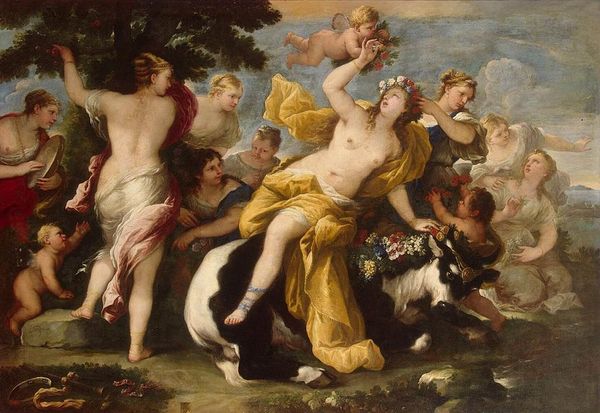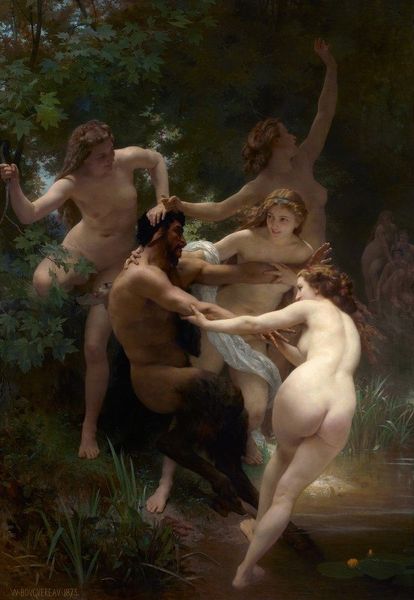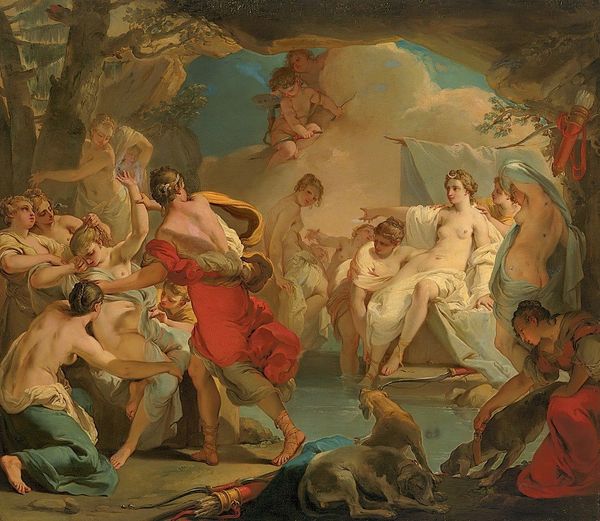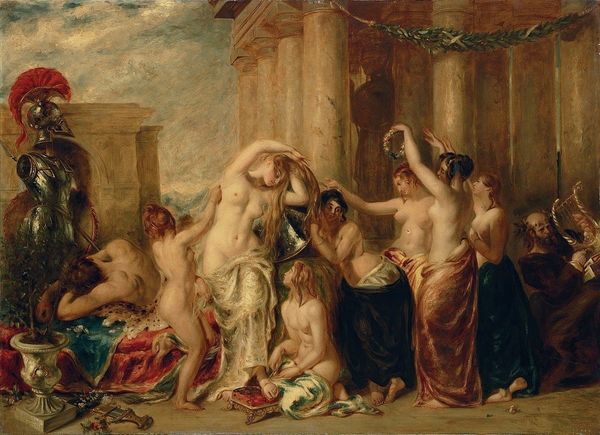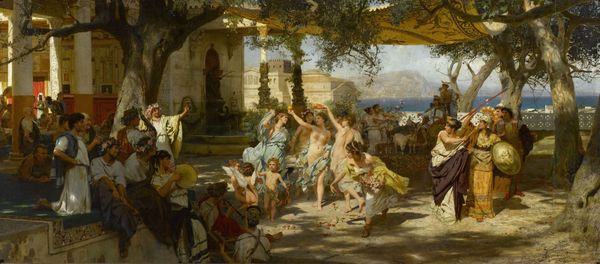
Copyright: Public Domain: Artvee
Curator: Oh, wow, a bacchanal in broad daylight! I am immediately drawn to the textures in this piece – the softness of skin contrasted with the ruggedness of the nature surrounding the revelers. It almost feels...tactile? Curator: We're currently viewing "The Youth of Bacchus" by William Bouguereau, painted in 1884. This oil-on-canvas is a magnificent example of academic art, blending classical idealism with a romantic sensibility and demonstrating how myth becomes infused into even history painting of the late 19th Century. Editor: You’re right – that contrast hits me too! There’s a really strange tension in the figures, right? They’re indulging, yet there's an element of restraint? Or perhaps an attempt at refinement amidst utter chaos, very intriguing. Curator: Exactly! This restraint reflects the academic ideals in the narrative, even with a supposed abandonment of reason, but let's delve into how the construction and portrayal of these figures uphold or perhaps challenge broader power dynamics of his time. We can analyze it as an idealization of the nude form within a societal structure where access to beauty and leisure were unequally distributed along lines of gender, class and even race. Editor: Totally, there's the visual delight of perfect, smooth skin but under it I feel this… suppressed tension. Are we really seeing joy, or is something darker lurking in the edges? It makes you think about who gets to experience this abandon and how it might relate to a sort of fleeting illusion of freedom in reality, huh? The whole scenario seems posed, like a scene caught in a glimpse on an outdoor movie set, where even 'history' has to have that perfect angle for Instagram. Curator: Absolutely. Bouguereau, known for his technical mastery and classical subject matter, presents Bacchus, the god of wine and revelry, not in chaotic madness, but as a celebration of cultivated beauty. This highlights how classical idealism filters even the depiction of ecstatic abandon through a lens of power, demanding we address these portrayals critically in order to dissect and expose what's actually shown. Editor: Thanks to you, I see that the work wants to show uninhibited pleasure, but its perfect artificial construction betrays that very freedom – there's so much intention within the pose, it feels fake! Still a cool painting to be stuck in front of in a museum all day. It definitely will spark many conversations to be had! Curator: Agreed. There are complexities within such seemingly straightforward depictions, requiring ongoing dialogue between art, history, and theory.
Comments
No comments
Be the first to comment and join the conversation on the ultimate creative platform.
